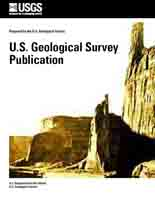Ground-water availability in the United States
Links
- More information: USGS Index Page (html)
- Download citation as: RIS | Dublin Core
Abstract
Suggested Citation
Reilly, T.E., Dennehy, K.F., Alley, W., Cunningham, W.L., 2008, Ground-water availability in the United States: U.S. Geological Survey Circular 1323, vi, 70 p., https://doi.org/10.3133/cir1323.
ISSN: 2330-5703 (online)
Study Area
| Publication type | Report |
|---|---|
| Publication Subtype | USGS Numbered Series |
| Title | Ground-water availability in the United States |
| Series title | Circular |
| Series number | 1323 |
| DOI | 10.3133/cir1323 |
| Year Published | 2008 |
| Language | English |
| Publisher | United States |
| Contributing office(s) | Groundwater Resources Program |
| Description | vi, 70 p. |
| Country | United States |


